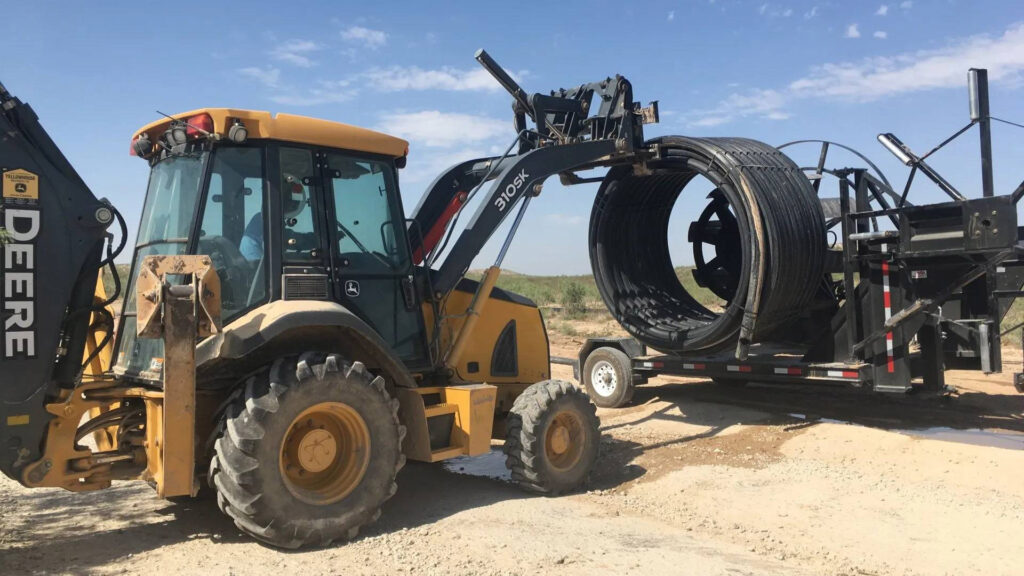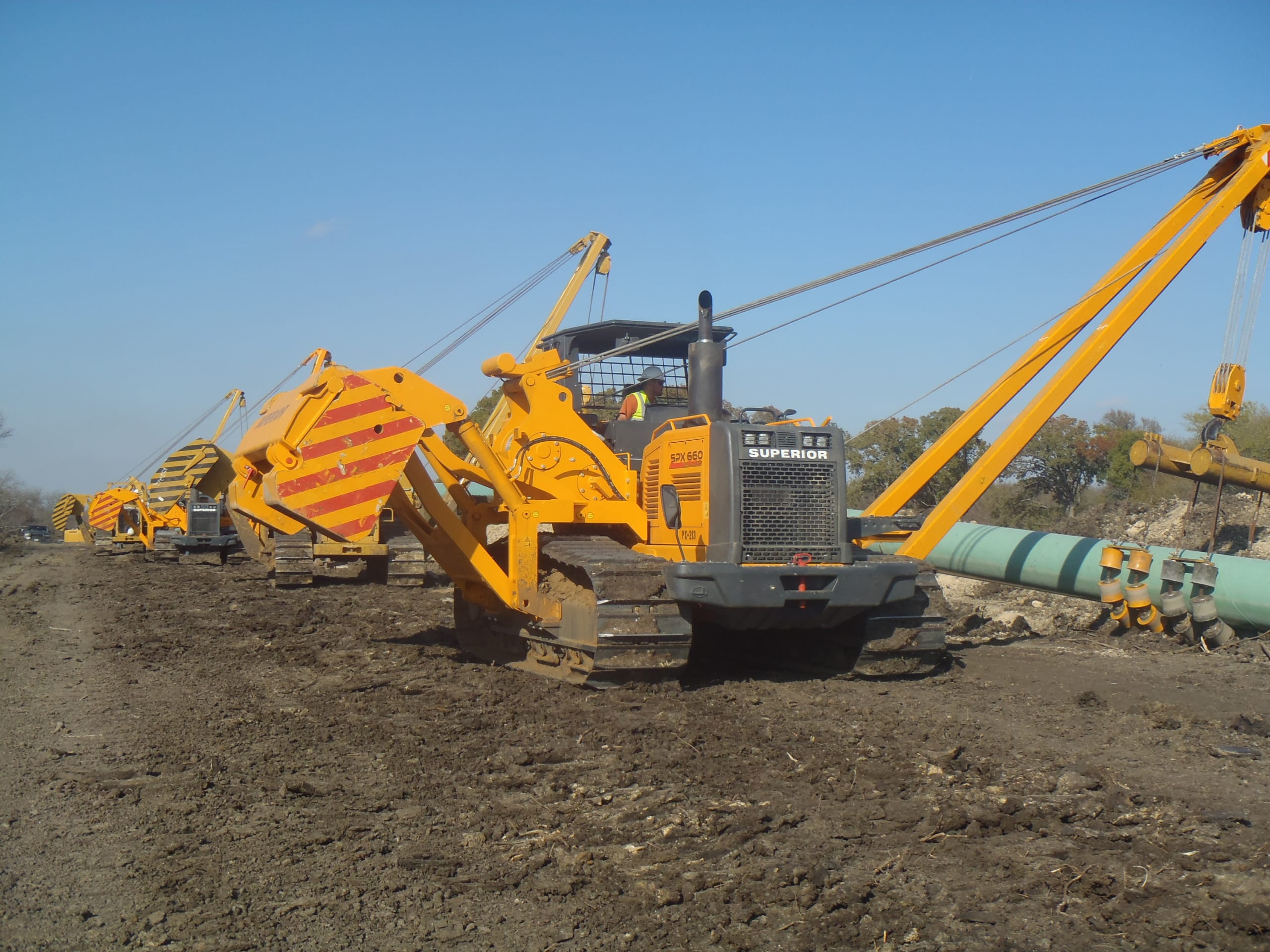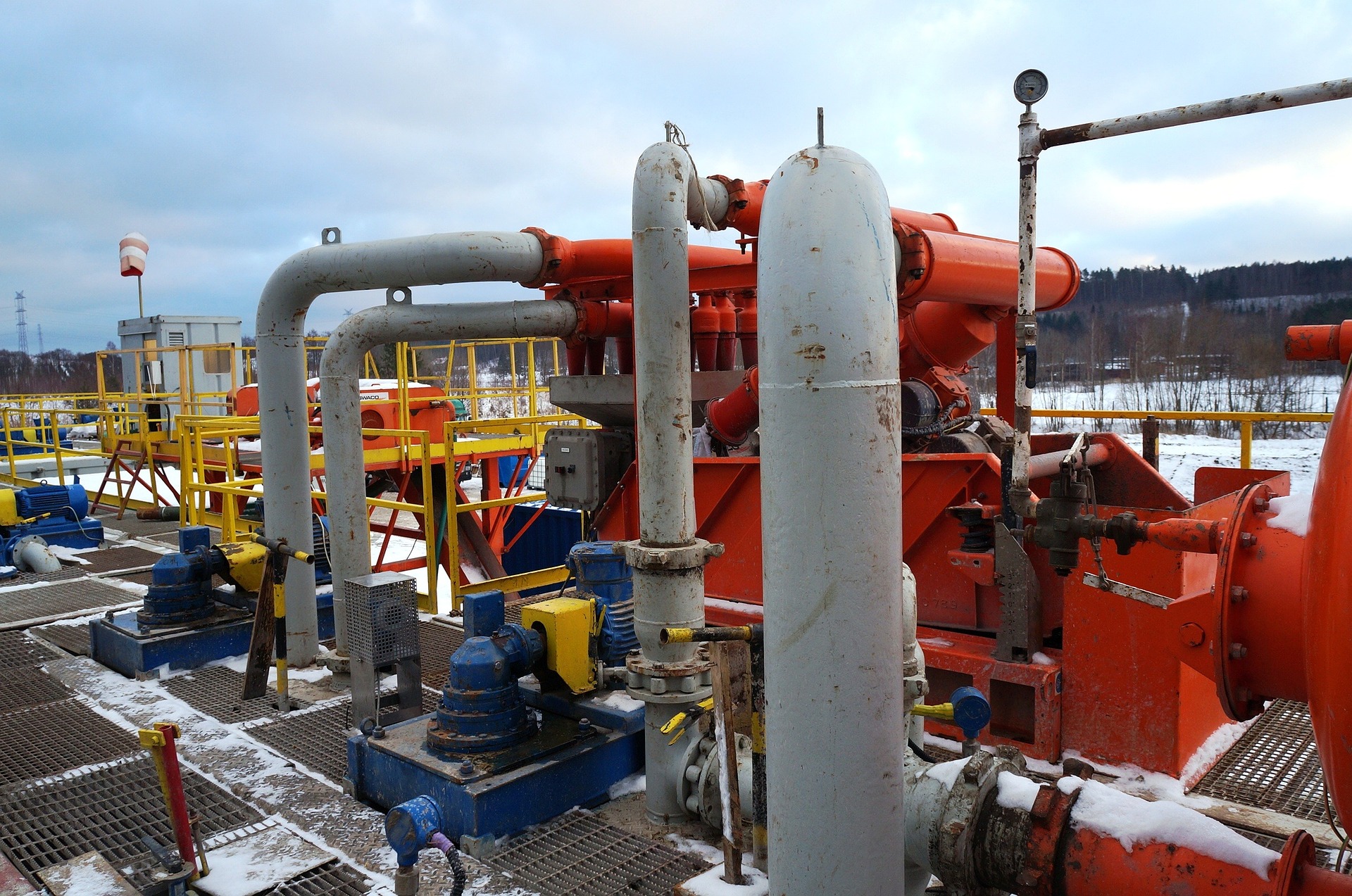Superior Oilfield pipeline equipment rentals: case studies
Wiki Article
A Comprehensive Guide to the Different Kinds of Oil Field Equipment and Pipeline Equipment Available
The oil and gas sector depends heavily on specialized equipment for efficient removal and transport. Numerous kinds of equipment, from piercing rigs to storage space containers, play crucial functions in this complicated process. Each item of devices offers distinct features that add to overall operational success. Comprehending these parts is essential for anyone associated with the industry. As the sector develops, so also do the technologies that support it. What advancements are on the perspective?
Drilling Rigs: The Backbone of Oil Expedition
Drilling rigs work as the crucial equipment in the domain of oil exploration, allowing business to gain access to hydrocarbon books hidden deep under the Planet's surface area. These rigs can be found in different kinds, including land rigs, offshore rigs, and mobile units, each designed to run in particular environments. Equipped with advanced innovation, piercing rigs can penetrate geological developments with precision, ensuring effective source removal. The architectural honesty and operational capacities of these rigs are vital, as they should stand up to severe conditions and significant pressures. The choice of a boring rig impacts the overall task cost and timeline, making it an important consideration for oil firms looking for to maximize their exploration initiatives and optimize performance in their procedures.Pumps: Essential for Liquid Motion
In the oil removal process, the function of pumps is considerable, facilitating the motion of fluids throughout various stages of manufacturing. Pumps are necessary for transporting petroleum, water, and other liquids from below ground storage tanks to the surface area and after that via pipelines to refineries. They come in different kinds, including centrifugal, favorable variation, and completely submersible pumps, each serving particular objectives based on the liquid attributes and functional demands. Centrifugal pumps are commonly used for their efficiency in high-flow applications, while positive variation pumps excel in taking care of viscous fluids. The option of pump impacts total effectiveness, functional safety, and maintenance prices. Appropriate selection and maintenance of pumps are vital for maximizing production and reducing downtime in oil area procedures.Valves: Managing Circulation and Pressure

Valves play an essential duty in handling the circulation and pressure of liquids within oil fields and pipelines. Different sorts of shutoffs serve unique applications, each made to accomplish details features basic for efficient operation - Superior Rentals fusion machines. Comprehending the attributes and uses these valves is crucial for optimizing system efficiency and safety
Sorts of Valves
Vital elements in oil area procedures, shutoffs play an essential function in regulating the circulation and stress of fluids within pipelines and tools. Various kinds of shutoffs are utilized to fulfill the varied needs of oil and gas manufacturing. Typical kinds consist of gateway shutoffs, which offer a straight-line flow and very little stress decline; globe valves, understood for their throttling capabilities; and ball valves, recognized for their fast on/off control. In addition, check valves prevent heartburn, while butterfly shutoffs offer a light-weight service for controling flow. Each valve kind is made with particular products and arrangements to withstand the severe conditions typically discovered in oil fields, making sure reliability and efficiency in operations. Comprehending these kinds is essential for reliable system management.Valve Applications and Functions
While different sorts of valves serve distinct purposes, their key applications revolve around controlling flow and stress within oil and gas systems. Valves such as entrance, globe, and sphere shutoffs control liquid activity, making certain peak performance and safety and security. Gateway shutoffs are frequently utilized for on/off control, supplying marginal circulation resistance. World shutoffs, on the various other hand, deal precise flow guideline, making them suitable for throttling applications. Ball valves are preferred for their fast operation and limited securing abilities. In enhancement, pressure relief valves are vital for protecting against system overpressure, protecting devices stability. Generally, the suitable choice and application of valves boost functional efficiency, making certain the reliable transport of oil and gas through pipelines and processing facilities.Compressors: Enhancing Gas Transport
Compressors play an essential duty in the effective transportation of gas, guaranteeing that it relocates smoothly through pipelines over fars away. These tools boost the pressure of all-natural gas, enabling it to get rid of rubbing and elevation modifications within the pipeline system. In addition, compressors help with the harmonizing of supply and demand, fitting changes in consumption and production rates. Numerous kinds of compressors are used in the market, consisting of centrifugal, reciprocating, and rotating screw compressors, each offering distinctive benefits based on the operational demands. Normal upkeep of these compressors is vital to make the most of effectiveness and reduce downtime, ultimately adding to a reliable gas transport network. Their essential feature highlights the value of compressors in the general oil and gas framework.Storage Tanks: Safe and Efficient Liquid Management
Reliable transport of gas relies upon different support group, among which is the proper monitoring of tank. These tanks play a vital duty in safely containing liquids, ensuring that operational performance is kept while reducing ecological dangers. Constructed from resilient products, they are designed to stand up to high stress and corrosive components. Correctly sized and tactically situated, tank assist in the smooth circulation of gas and various other liquids, stopping bottlenecks in supply chains. Regular maintenance and tracking are important to spot leakages or structural problems, advertising safety and security and conformity with regulatory criteria. Eventually, the efficient management of tank is vital for the general stability and integrity of the oil and gas sector's fluid handling systems.
Pipeline Systems: Infrastructure for Transport
Pipeline systems offer as see here the backbone of the oil and gas market, helping with the efficient transportation of hydrocarbons over substantial distances. These systems consist of different elements, including pipelines, shutoffs, pumps, and compressors, all diligently made to guarantee smooth circulation. The materials made use of in pipeline building and construction, often steel or high-density polyethylene, are selected for toughness and resistance to corrosion. Pipeline networks can span throughout land and water, linking production websites to refineries and distribution. Additionally, progressed modern technology makes it possible for real-time tracking of circulation prices and stress levels, improving functional effectiveness. The calculated placement of these pipes minimizes ecological impact while maximizing resource access, consequently playing an important role in meeting power needs globally.Security Equipment: Making Sure Worker and Environmental Management
The procedure of pipeline systems, while crucial for energy transport, also provides significant security challenges for workers and the setting. Security devices plays a substantial duty in minimizing these threats. Individual safety devices try this web-site (PPE) such as safety helmets, gloves, and non-slip footwear safeguards workers from physical dangers. In addition, gas discovery systems monitor for leakages, ensuring that hazardous materials do not pose a threat to personnel or the surrounding ecological community. Emergency situation shutdown systems are essential for swiftly halting procedures throughout a dilemma, avoiding potential catastrophes. Spill control materials, including absorbents and obstacles, are basic for minimizing ecological influence. Generally, purchasing all-encompassing safety and security equipment is essential for keeping functional integrity and securing both employees and the setting in the oil and gas field.
Frequently Asked Questions
Exactly how Do I Choose the Right Oil Field Equipment for My Project?
Choosing the ideal oil field devices involves reviewing task specs, budget plan constraints, and functional demands. Take into consideration factors such as equipment reliability, compatibility with existing systems, and the vendor's credibility to guarantee peak efficiency and safety.What Are the Upkeep Needs for Oil Field Equipment?
Upkeep demands for oil field equipment consist here are the findings of regular evaluations, lubrication, and timely repairs. Operators should also follow supplier standards, screen performance metrics, and assurance conformity with security policies to boost longevity and effectiveness.
How Can I Guarantee Compliance With Environmental Regulations?
To ensure compliance with environmental laws, business must carry out routine audits, apply finest practices, purchase training, keep appropriate documentation, and stay updated on regulations (Superior Oilfield Rentals oilfield). Partnership with ecological agencies can likewise enhance adherence to lawsWhat Is the Average Lifespan of Pipeline Equipment?
The ordinary lifespan of pipeline devices normally ranges from 20 to 50 years, relying on variables such as material quality, ecological conditions, and upkeep techniques. Normal examinations can significantly influence long life and operational effectiveness.Exactly how Do I Securely Move Oil Field Equipment to Remote Locations?
Transporting oil field devices to remote locations calls for mindful preparation, including route analysis, safeguarding authorizations, using suitable lorries, and guaranteeing security procedures are followed. Appropriate training and communication amongst teams are essential for successful transportation.Report this wiki page